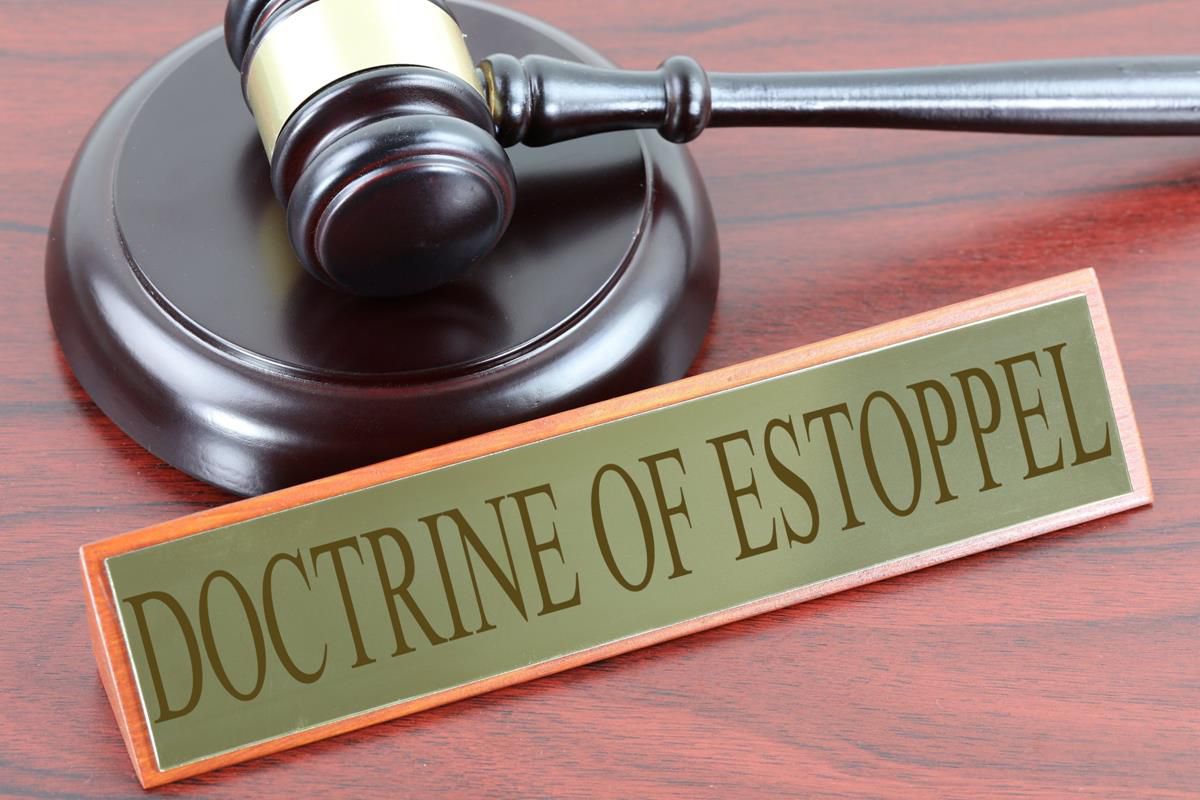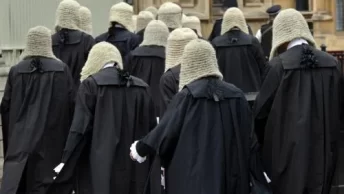Ed Note: In this post, our analyst Mrityunjoy Roy, writes about the case of Najma v. GNCTD of the Delhi HC where it ruled that an Oral promise made by a CM or government functionary publicly is enforceable by law, and discusses it around the law of promissory estoppel and its implications for the wider public.
During the nationwide lockdown during the first wave of the covid-19 pandemic in India, the CM of Delhi in a televised press conference promised to pay rent for those who could not pay. However, no action was taken in this regard. In July 2021, in a landmark judgement the Delhi HC held the promise made by the CM to be legally enforceable citing the doctrine of promissory estoppel. It held that promises made by government functionaries, no less than the head of government in this case, are enforceable in law even if they’re mere oral promises and ordered the Delhi government to pay the rent. This piece will try to explain the concept of promissory estoppel and the implications of the Delhi HC’s judgement.
What is Promissory Estoppel?:
Promissory estoppel is a legal doctrine of equity to enforce promises by individuals. The general principle of estoppel is codified in Section 115 of the Indian evidence Act. It requires that:
- A person make a representation or promise
- Knowing it to be likely or intending that it will be acted upon by those to whom it is made
- Someone believes it and acts upon it
- Then the person making the representation is bound by it.
When this representation relates to future course of action, or a ‘promise’ about one’s future conduct, it becomes ‘promissory’ estoppel (PE). The High Trees House case is an english decision which explained and affirmed this principle of PE in contract law and common law. It is based on the idea that one cannot make a promise that another relies upon, even if not formally in writing, and then renege on it.
PE was originally a doctrine of private law, but after the Supreme court case of M.P. Sugar mills v. State of U.P., the doctrine has been extended to bind the government as well. In that case the UP government refused to grant certain tax exemptions that it had notified, relying on which the petitioner had secured a loan for a business. The chief secretary of UP had assured the petitioner that the exemptions would be granted, on the basis of which the petitioner proceeded. Here, the government was held estopped from not granting the announced exemption to the petitioner. It was held that the government is bound because it has a duty to act fairly and reasonably, especially in its commercial dealings, under Article 14 of the constitution, and as per a reasonable procedure as per Article 21.
It should however be noted that PE is not an absolute doctrine to bind the government. If the government can show an overriding public interest reason for which it cannot abide by its promise, then public interest must prevail and the government is not bound. For instance, in the case of M.P. Mathur v. DTC, the DTC had passed a resolution to sell allotted houses to retired employees. However, a later report found that there was already a shortage of houses to allot to existing employees and the cost of replacing the houses to be sold was too high for the DTC to afford. This was found to be a sufficient public interest reason for DTC to not be bound by its earlier resolution. Furthermore, estoppel cannot be used to override any statute or law. Therefore, any promise made by the government contrary to any law would not be enforceable.
What kind of representations/promises have a binding effect?
In both these doctrines, to have binding effect a promise needs to be based on a valid representation or conduct. Generally, formal government orders or notifications are the most common and easily enforceable representations. However singular actions or oral representations can also create a binding promise. For instance, in the recent case of Brahmaputra metallics, the Jharkhand government in its Industrial policy had announced some incentives to new businesses in the state. Relying on this, the petitioner started their business. However, no notification was issued granting the incentives. Here the SC estopped the government and ordered them to provide the full incentives as advertised in the policy. The Court held that an industrial policy is a formal policy document made to inform businesses about future state policy, so any representations made in it can be relied on by businesses. It observed that once the promise had been made through the industrial policy, issuance of the notification was a mere ministerial act that wouldn’t affect the promise itself.
Even oral representations by government officials have been held to create justiciable promises in certain exceptional cases. For instance, in the Nestle case, the CM of Punjab announced in a public rally for milk producers that the government had abolished a tax on milk. This was reiterated by the finance minister in the budget session of the state assembly, and subsequently in many government advertisements and a cabinet announcement said that a notification would be issued soon. Relying on all this, the petitioner did not file tax for that year to which no protest was raised. However, a year later a demand was made to pay the past year’s tax. Here, the SC again estopped the government saying that the circumstances would make it inequitable for the state to not exempt the petitioner given the many representations and acts by government functionaries which would give the reasonable impression that the tax was abolished.
However, in another case of Nezone law house, the court refused to rely on a sole verbal promise made by a minister that the government would buy certain books and enforce PE. The Dictum in Nezone law house is the general position on the issue of oral promises, with the Nestle case where multiple representations over time were involved being the exception.
Brief facts for Najma v. NCT of Delhi:
During the first covid lockdown, there was an exodus of migrant workers from cities across the country. In the middle of this, on March 29th, 2020 the Chief Minister (CM) of Delhi held a televised press conference in which he made an appeal to migrant workers to not leave the city. Towards the end of his address he asked landlords to not evict tenants, and in one short sentence said that the government would pay rent for those who are unable to pay due to the pandemic. However, no further statement, notification or action was taken on this issue by the government.
Towards the end of 2020 a group of poor migrant labourers from Delhi, and their landlords, filed a writ petition in the Delhi High Court to order the government to pay their rent up till that point, relying upon the statement of the CM in the press conference. They stated that it was relying on this promise that the petitioners had stayed back in Delhi and not gone home. They argued that they now had a legitimate expectation that their rent would be paid, and the government was now estopped from acting otherwise.
Judgement of the Court:
The Court ruled in favour of the petitioners and held the government estopped by the CM’s statement in the press conference. The Court held that the statement made by the CM constituted an unequivocal promise by the government to pay rent during the pandemic, and this bound the government by promissory estoppel.
To judge whether the statement by the CM constituted a valid promise or justiciable representation, the Court did not look at the nature of the promise itself but at how the same may be perceived by the common citizen. The Court concluded that when the CM, head of government, gives an assurance in public, the general public may reasonably believe that it represents a policy of the government, and act upon it. (para 97,98) It observed that given the context of the pandemic it could not be seen as a mere ‘political promise’. It also stated that courts cannot allow tall statements in the form of ‘puffery’, as in commercial advertisement, to be used as a defence by constitutional functionaries (para 103).
The Court observed it is not necessary that there be any further notification or policy decision by the government for the promise to bind it. They stated that the announcement by the CM as head of government could itself be perceived as a policy decision of the government, creating expectations in the minds of citizens(para 108). The act of issuing a notification afterwards is only a ‘ministerial act’ not affecting the promise itself. Infact, they stated that the indecision and inaction by the government upon the CM’s promise as the main unlawful act. They observed that the government could not treat the CM’s announcement as inconsequential and leave the citizens in uncertainty, and they must take a decision (para 99, 101). Therefore, the Court ordered the government to take a decision on the policy within 6 weeks, and incase they chose not to implement it, they must show an overriding public interest that would justify non-implementation. Failing this, they concluded that the government would be bound by the promise.
Implications of the case:
This judgement has huge implications since it greatly expands the scope of PE – both in terms of the representations which may give rise to PE, and in terms of the kinds of promises that become justiciable. Firstly, it creates a justiciable promise from a mere oral statement by a minister with no other policy decision or action of the government. Since the logic of the judgement is to see whether the promise is likely to be believed by persons as a policy of the government, it could potentially mean that any promises made by political functionaries in public or in political rallies or even in manifestos would become justiciable. This is because on such an understanding, a manifesto may be perceived as a promise made by the political functionaries based on which persons vote or take decisions after a government is elected. Such an understanding would fundamentally change the nature of political rallies or manifestos.
But the judgement also represents an aberration in many ways. It goes against the general judicial trend of not recognising mere oral statements, even by constitutional functionaries, to bind the government by PE. Secondly, it could be asked whether a sole oral representation, even if it is made by the CM, is one that is likely to be believed by a reasonable person and be acted upon, which is a pre-requisite for PE. Infact, if no further action was taken on the representation, it might indicate that the representation was never intended to create a legal right or was a political promise, for which at best one could not vote for the person in the next election. A long line of cases, most recently Tripura publishers have held inaction by the government to represent lack of intention to give a promise, thereby rebuffing a claim for estoppel.
But besides not following precedent, there are other reasons why we might be wary of recognising mere oral assurances as justiciable against the government. It is a reality that many promises made by political functionaries are ‘political promises’, which are in the nature of puffery and on later inquiry might be found to be impractical. This is why promises made in election manifestos and rallies are not held justiciable in court, since it is accepted that the later implementation of those promises might be found to be difficult.
On another point, if the representation is never reiterated in future, it might be an indication that the representation was an ‘off the cuff’ remark, made without prior thought as an error which might be unfair to enforce against the government. There should certainly be a higher threshold of formality or certainty for a representation by the government to be seen as a binding promise, otherwise the government could potentially be hamstrung through any random remark made by a government functionary.
Conclusion:
Following the Najma decision, the Delhi HC is already considering another case of a promise made by the CM. He had promised an ex-gratia award of Rs. 1 crore to a police constable who died from covid as a frontline warrior during the first national lockdown, and tweeted about the same. The deceased constable’s widow has now filed a petition to enforce the promise of the ex-gratia award. The hearing of that case is presently adjourned since the Najma decision has been stayed by a division bench of the HC on appeal. The Najma case has grave implications for the way political speech and promises work in India and how far Courts are willing to bind the government. The appeal is listed to be heard next on 15th March, 2022.








Your article helped me a lot, is there any more related content? Thanks!
Can you be more specific about the content of your article? After reading it, I still have some doubts. Hope you can help me. https://www.binance.com/lv/register?ref=B4EPR6J0
Can you be more specific about the content of your article? After reading it, I still have some doubts. Hope you can help me.